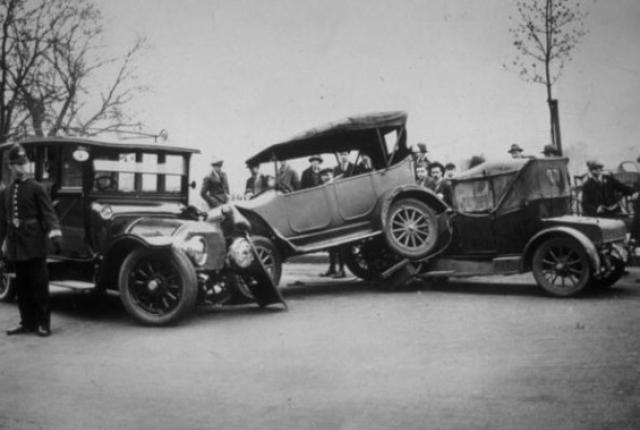Transferred by Anoop Anthony

Transferred by Anoop Anthony
Dr. Sanil Cherian sat slumped at his desk and thought longingly about going home and getting drunk out of his mind. For this was his daily routine — he left the clinic at 5:00 PM, drove to the miserable little government-issued villa where he lived, and then drank shot after shot of single malt whiskey until he passed out.
It was the only way he could fall asleep these days, and the only way to get time to pass during the endless evenings in this godforsaken shithole of a village in the far North of India.
He shouldn’t have been here in the first place; he had never wanted to leave the city or his cushy job at the SKR Government City Hospital. Had it not been for the treachery of that bastard Sudhakaran who, behind his back, had requested that Sanil be transferred, he would have been at home, in his apartment at the Marina Bay in the heart of the city, two thousand kilometers from here.
They had transferred him to the farthest place they could. When he’d protested, they told him that he had two choices: either go… or quit.
He had gone. After all, what had happened to the girl had been his fault.
No. Don’t think about that now. Please, no.
The truth was that he had not wanted to lose the job. Working for the government’s medical department had invaluable perks — free education for one’s kids (when you eventually had kids), a fat pension after a mere thirty years in service, guaranteed professorial positions in government medical colleges, government-issued accommodation, and, for senior positions, chauffeured cars.
The downside was that they could transfer you anywhere in India they wanted.
Especially if you screw up.
He pushed this thought away, and his craving for a drink intensified. A moan escaped his lips.
The sweltering heat did not make things better. The slowly rotating ceiling fans pushed the heat around. This clinic, if you could call it that, was just a block of rough concrete with two whitewashed rooms, one which served as a waiting room and the other his consultancy room. The clinic was ill-equipped to deal with anything but the most basic cases. All he did was dispense tablets and ointments for common illnesses — fevers, headaches, colds, bad tummies. For anything slightly more complicated, he had to refer the patient to one the larger government hospitals in the neighboring towns. It was humiliating. To go from being a senior GP in the OP department of a major hospital in the city to this — a glorified quack in a somnolent dead-end of a village.
To make matters worse, the patients he saw — low wage masons, road workers, and farmers — were difficult to deal with. Most were illiterate to the point of idiocy. The dialect of Hindi they spoke was so thick it was unintelligible; Sister Mishra, the sole nurse in the clinic, who somehow seemed to understand their lingo, translated their complaints for him.
The villagers treated him like a demi-god, standing up reverentially when they saw him, speaking to him in tones of awed deference. Back when he was a hotshot in the city hospital, he had secretly relished the deference, lapped it up in fact. Although his patients in the city were more sophisticated, they too had shown him the deep respect that all Indians gave doctors. But now, the adulation chagrined him and made him feel like a fraud.
He glanced at his watch and wondered (for the millionth time) at how slow time seemed to pass here, as if he were in some cruel dimension where clocks ran more slowly than the rest of the world. The dusty road outside the clinic rarely saw any cars. Crows cawed stupidly in the heat, settling in the branches of dusty trees and peering with bright black eyes at passersby.
This village was at the end of the world, the nearest town nearly fifty kilometers away.
He stirred sluggishly in his chair (even the damned chair was uncomfortable) and thought again of the tall glass of scotch and water, rattling with ice, frosted and sweating, that he would have as soon as he got home to his shitty government villa.
He was thinking about the drink when he heard the ruckus in the waiting room — a woman shrieking, and Sister Mishra trying to placate her.
He placed a palm over his eyes and stifled a groan: more high drama. Last week, a woman had shown up with a bruise on her upper arm. She entered the clinic wailing at the ceiling, complaining loudly and bitterly about her no-good, violent husband to anyone who would listen. It had taken Sister Mishra considerable effort to calm her long enough for Sanil to give her an ointment for the pain. She had thanked Sanil as if he were a deity.
Another time, a woman brought her son, an eight year old with a mild tummy ache. The woman wailed as if the boy were dying. All the while, the boy sat nonchalantly on the examination table as Sanil examined him. The child had only reacted with a wince when Sanil prodded his belly. They had had to spend more time dealing with the woman than the patient.
These people, he thought.
Soon enough, Sister Mishra knocked at his door and peeked in.
“Doctor, we have a problem,” she said in English.
Sister Mishra loved her job. She had, incredibly, requested to be transferred here. She’d once told him that she had wanted to be posted in a remote area so that she might help “those who most needed it.” She spoke of her job as her “calling.” When she spoke that way, Sanil found himself grinding his teeth.
She did come in handy though; she was great with the villagers and seemed to have preternatural patience.
“What is it?” he snapped.
“Ah… I think I should send her in. She’s making a scene, and if other patients arrive… Shall I show her in?”
Sanil looked at her, “Do I have a choice?”
She said nothing.
“I thought not,” Sanil said, “It was a rhetorical question anyway. Send her in.”
&&&
The woman was rotund, short, swarthy, and perspiring. She was beating at her breasts and howling at the ceiling. Her cheeks were streaked with tears. Her hair had come undone and billowed about her. In her distress, her dialect had thickened so that she seemed to be speaking in an alien tongue.
Sanil sighed and looked helplessly at Sister Mishra.
Sister Mishra spoke loudly, over the sound of the woman’s bleating, “She’s saying that she wants you to come immediately to look at her boy.”
“What?”
“Her boy is at home, and he is too sick to bring here.”
“Why are you even entertaining this?” he snapped, “Tell her it’s not possible, we don’t do house visits. Let her bring the boy here.”
“I already told her that.”
“And?”
“She uh…insisted that she meet you, doctor.”
Sanil stared at the woman. In rare cases, especially in places where transport was difficult to come by, a doctor could at his or her discretion decide to go to a patient’s home. If the child were really in such a grave condition, he would consider going.
“What’s wrong with the boy?” he said, trying to keep the weariness out of his voice.
The woman babbled something, her face twisted in agony, her hands flailing in the air in despair.
Sister Mishra hesitated, “I… I think you’re not going to like this.”
Sanil shut his eyes. He drew a deep breath. “Try me,” he said.
“She says that… er.. her son is possessed. “
“What?”
The woman blathered some more.
Sister Mishra, looking discomfited, said, “She says a uh.. demon got into him last night when he was out roaming in the woodlands. She says that the boy had been told to not go into the forest after dark but he disobeyed. Everyone knows about the demon who lives there.”
Why? He thought. Why did my life end up like this? I didn’t even want to be a fucking doctor. This is what Appa wanted, not me, and I did it to make him happy. All so he could say that there is a doctor in the family. And all it has brought me is fucking pain. Five years in college, slogging, cutting up cadavers. And now, here I am, in this dead-end village with these mindless superstitious idiots.
Sister Mishra cleared her throat, “I’ll try to get her out of here.”
He intoned, “Please tell her that I don’t treat such conditions. I think she is mistaking me for a priest.”
Sister Mishra turned to the woman and spoke rapidly. She had picked up their patois really well. He had never bothered to, and he wasn’t going to either.
The woman shook her head empathetically, pointed at Sanil, and uttered something.
Sister Mishra turned to him and said, “She says that the demon asked that you come.”
He stared at her. I could have taken engineering. Or gone into business with Appa, God rest his soul. I would have done good in business. Life would have been easier. It was my mistake. Everything is my mistake.
In his mind’s eye, he saw visions of a tall glass of scotch sweating beads of ice-cold condensation. He could almost taste the chilled spirit in his mouth, almost feel its glorious fire work its way down to his belly.
The woman let out a wail.
“So,” he said colorlessly, “this demon wants to consult an allopathic doctor?”
“That’s what she said.” Sister Mishra said. She looked like she wanted to be anywhere else but here.
“Please tell her that it doesn’t matter what this… demon wants. Doctors don’t treat such issues. “
Sister Mishra conveyed this to the woman patiently, but the woman responded with great animation, gesticulating wildly.
Sister Mishra said, “She says the demon did not just ask for any doctor. It wants you. It even described you.”
No more. Enough.
“Tell her… tell her we don’t do house visits. Send her away, Sister. Don’t waste any more time. “
Sister Mishra turned and spoke at length to the woman.
The woman turned and looked at Sanil. Her eyes were bright, her lips dry. She uttered a single sentence.
Sister Mishra frowned. “She’s saying the demon knew you would say that. So it gave her a message for you. It made her memorize it.”
“A message?” he said, “For me?”
The woman looked directly at him and spoke in halting English, “You. killed. girl.”
&&&
Sanil drove his jeep sitting hunched over the wheel. The woman sat in the back seat and gave directions. “Here left, here left!” she hollered as if he were not right in front of her.
They made their way over rough, mud slick roads, cutting through fields of barley and paddy. Far to the East were the forests, thick woodland stretching for kilometers to the mountains.
Sister Mishra, sitting in the passenger seat, said quietly, “She is suffering from illusions or psychosis. We should not go.”
He did not reply.
Sister Mishra said, “What was that she said, about… a girl?”
“I don’t know,” Sanil said, brusquely.
She did not pursue the subject, thank God. But he caught her throwing sidelong glances at him.
When the crazy bitch had mentioned the girl, that too in English, his mouth had fallen open. He had stared at her in horror.
This woman couldn’t have known about the incident.
A prank, he’d thought. An obscene, malefic prank. Maybe that bastard Sudakaran had put her up to it.
Except that the idea of Sudarakan, 60 years old, stolid and humorless, plotting a practical joke, or even having the time to do it, was patently ridiculous. Especially not one so cruel.
And, more importantly, why? Why would he do such a thing?
Maybe someone else had put the woman up to it. But who? Only a few people knew the truth about what had happened with the girl, and none of them would take such pains to torment him.
The girl. Again the girl. Haunting him here, even though he’d traveled (been banished) hundreds of kilometers away.
&&&
She was six years old, and it was her mother who brought her to the hospital.
Sanil was handling the OP department on the late shift, so naturally, the case came to him.
The child was small and pretty. And extremely sick.
Her mother carried her in, the child’s head lolling on her shoulders. She told Sanil that the child hadn’t eaten anything since breakfast, that she was vomiting violently, that her fever wasn’t dissipating, and that she was barely able to keep even water down.
Sanil put the child on IV fluids immediately to prevent the real danger of dehydration. He had blood tests done and found her platelet count extremely low, as he had suspected. He asked the child’s mother to admit the girl to the IP ward immediately, where he put the patient on potent doses of intravenous antibiotics and NSAIDs. The fever might be viral, but he wanted to do put up a defense on all fronts, just in case.
He did everything by the book.
By the time he was done, it was twenty minutes past nine pm, well past the end of his shift. Before he left for the day, he did a final check on the girl. He found her fast asleep on a bed in the general ward, tubes leading from her arms to the translucent IV fluid sacks. Her fever had subsided. Her mother was sleeping on the floor beside her bed. (There was no other place to sleep in the general wards)
He often thought about what he did next, often wondered how his life might have played out had he been in less of a hurry to go home just so he could have his drink.
In was the hurry that caused the mistake. There was no other way to say to it — he got careless. There was a clear indication in the child’s file that she was strongly allergic to Vitamins of the B variant. He missed this vital piece of information when he put in a note to the shift nurse to add a supplemental dose of Vitamins and Folic acid to the patient’s IV drip.
He left the hospital and drove home, thinking only of having a shower and then sitting in front of the television and sipping a tall glass of single malt scotch on the rocks while the day’s tensions melted away.
After he got home, he made the second fatal mistake: he left his phone in his trousers when he stepped into the shower. He wasn’t expecting emergencies. And that was how he missed the frantic calls from the duty nurse.
By the time he called back, the child was already dead; her throat had swollen up from the allergic reaction and sealed off her windpipe.
He raced back to the hospital. There he learnt that the duty doctor had rushed to the scene only to find the child already clawing at her throat and going blue in the face. It had taken the duty doctor two precious minutes to frantically pore through the patient’s history and drug charts. By then it was too late.
A series of tragic coincidences had caused the child’s death, but in truth Sanil was solely to blame. He had missed a crucial bit of information because he had been careless and distracted.
The chief physician convened an emergency meeting that night. He called the mistaken drug prescription ‘a terrible oversight’ and told them that they would not be telling the child’s parents the real cause of their daughter’s death as it would cause a furore.
None of the doctors present there argued with his directive; they knew that a patient’s death by suspected malpractice or negligence could provoke mob violence and protests. Such fallouts had happened at several hospitals across the nation — doctors beaten by angry mobs, hospitals shut down. The chief physician said that they could not risk lives, property, and the well-being of other patients due to one unintended death. (Sanil stared at the floor the whole time.)
Therefore, they would tell the parents that the child’s condition had worsened during the night and that the fever had caused seizures and, eventually, organ failure. They could have done nothing more to save her.
“It was an honest mistake,” the chief physician added, glancing sympathetically at Sanil.
The parents, who were simple brick workers, accepted this explanation without question, indeed with fatalistic resignation, as if the death of their child was their lot and an act of God.
They grieved and buried her a day later.
And he, Sanil, was given a choice: be transferred out or resign.
&&&
Following the woman’s directions, they drove down a dirt road that cut through a dried up field, and arrived at a rough, squat brick structure. Its walls were coarse and uneven, it’s window panes and doorway of naked wood. It looked barely large enough to house two or three rooms. The land they were on was of hard red mud, an unforgiving land. The sight of it invoked thoughts of drought and death.
The front door was wide open and within lay darkness.
Twilight had fallen — the sky was bloodshot, and a crimson hue lay across the land. An ill wind kicked up from the East. Soon it would be full dark.
Sanil stepped out of the car.
From within the house, a man’s voice, deep and hoarse, hollered in coarse Hindi, “You stupid cunt, did you bring the mother fucking doctor? How long will you take?”
The woman cowered behind Sanil and burst out crying.
Lout of a husband. No surprise there. It was a prevalent disease in these parts; abusive men who made their women work, and who drank away their wages and beat their wives.
The woman blubbered something to Sister Mishra in her thick, impenetrable patois.
Sister Mishra looked at Sanil, and in the dull red light of the dying sun, her face looked ghastly pale, “She says that’s her son we’re hearing.”
“What nonsense,” roared Sanil, “That’s a man’s voice. How old is her son.”
“Six years old.”
Sanil clenched his fists. He whirled on the woman, who flinched. “Let’s go and see,” he snapped, ” I’ve had enough of this nonsense. Whoever is making this sick joke will pay for it. Pay for it dearly, wasting our time.”
He strode to the house and marched through the door.
&&&
As his eyes adjusted to the dark, he saw that there were about a dozen people huddled together at one end of a large room, men and women in traditional farmland attire, their eyes wide and their faces blank with shock.
At the other end of the room, to his left, was a low slung bed. On the bed was a bare-chested boy of about five or six, his wrists and ankles bounds to the bed’s posts with coarse rope. The rope had chafed his skin and left ugly red welts.
The boy turned his head as soon as Sanil entered. His face was a mask of twisted rage; his eyes were glittering black pools, his mouth was set in a snarl.
“Ah, doctor,” a baritone voice filled the room. And there must have been some trick of the light because it was the child’s mouth that was moving along with the words, “I knew you would come.”
What the fuck is this? Sanil thought faintly.
Behind him, Sister Mishra let out a gasp. The child’s mother was wailing again, saying the same words over and over again — My son. My son. My son.
Sanil, realizing that all eyes were on him, took a step towards the boy.
“You got our message!” the ragged voice emerged from the child’s mouth, and the expression on its face turned into a leering, vile grin. “You got it, and you came running.”
“What… what devilry is this?” Sanil said.
The boy uttered a series of guttural choked sounds, then threw his head back and laughed. The sound of the laughter was obscene, and the crowd of onlookers moaned in terror. A man ran out of the house screaming. Sister Mishra put an arm around the child’s mother and drew her away from the bed. Her face was a pale disc in the gloom.
“So doctor, let’s talk,” the thing that looked like a child said in perfect English, “Let’s talk about the girl.”
“No,” Sanil moaned.
“You killed her. ” It grinned at him knowingly, and its black eyes gleamed in the dark.
Sanil took a step back, shaking his head.
The thing chuckled, the sound an abomination, “You killed that child. You killed her. “
“It was a mistake,” Sanil said, his mouth dry. He could barely breathe. “It was an honest mistake, I swear.” He felt Sister Mishra’s eyes on him. They were all looking at him. He took a step back, away from the bed and thing on it.
And suddenly it was the sing-song voice of a little girl coming from the boy’s mouth, “Why didn’t you pay attention? You could have saved me. “
The child on the bed threw its head back and roared laughter.
“Now heal this child. Heal it.”
“Please.”
“Heal it, oh murderous drunken god. Heal this child, oh god of shit and death. And let them all worship you. Let all of them fall on their knees and worship you.”
“No, ” Sanil screamed, “no, no no.”
He turned and ran.
The thing on the bed roared laughter. It was laughing so hard that it sounded like it might choke.
The boy’s mother called after him. Sister Mishra yelled his name.
But he did not stop. Could not stop.
He ran out to the car, got into it, and drove.
He drove manically, the sound of that tortured, hellish laughter still ringing in his ears. He drove past the fields and dirt roads, past the little government clinic to which he had been banished.
He drove until he hit the interstate highway.
And he kept driving. He drove through the night, staring straight ahead, gripping the wheel so hard that his knuckles were the same deathly white as his face.
THE END
Copyright Anoop Anthony 2019























